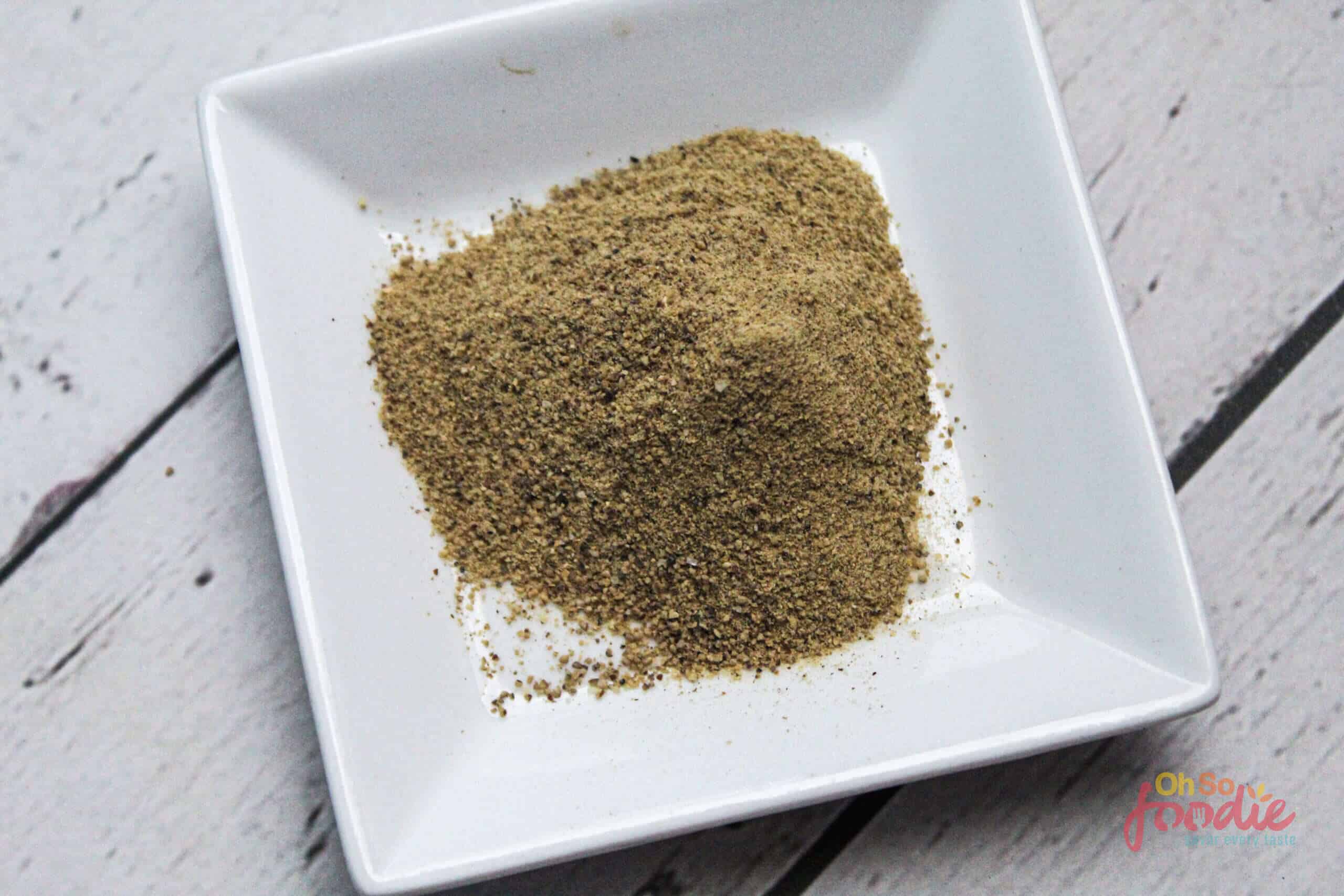Last Updated on October 19, 2022 by Toya
Here are 10 of the best ways to substitute for white pepper in any recipe!
White pepper is a spice from the berries of the Piper nigrum or pepper plant.
White pepper is made by picking the ripened peppercorns from the tree, then fermenting the seeds in water. Afterward, the black outer layer is peeled off to reveal the white inner seed referred to as white peppercorns, or ground into white pepper powder.
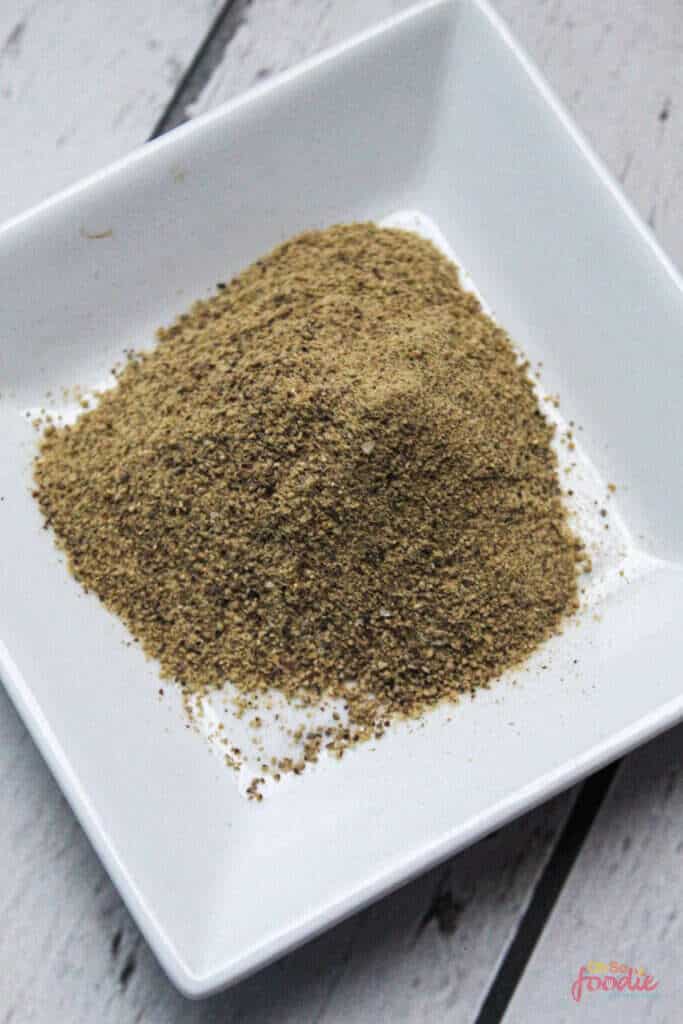
Because the outer layer is stripped off, white pepper has a milder, less complex flavor than black pepper, but they are the same seed, from the same plant.
The flavor of white pepper is often described as musty, spicy, and grassy.
Generally, white pepper is used most often in Chinese cuisine, and, in the Western world, in lighter-colored recipes so as to avoid the dark specks of black pepper.
Many people consider white pepper to be an inferior spice to its counterpart black pepper. As such, it is not as popular and harder to find in grocery stores.
As a result, if you’re looking for a good substitute for white pepper because you cannot seem to find it, or you don’t want to spend the money, this list is exactly what you need. It covers numerous white pepper alternatives that work well in most recipes.
What are the best substitutes for white pepper?
- White peppercorns
- Black peppercorns
- Green peppercorns
- Rainbow peppercorns
- Turmeric powder
- Ground ginger
- Cayenne pepper powder
- Ground mustard
- Red pepper flakes
Common ways to substitute for white pepper
White peppercorns
White peppercorns are the best substitute for ground white pepper. If you have them, it is important to note that 1 teaspoon of white peppercorns is equivalent to 1 ½ teaspoons of ground white pepper.
But, if you want to make your own ground white pepper from the whole peppercorn berries, simply use a spice mill or mortar and pestle to grind up your white peppercorn berries to a fine powder, then use a substitute of 1:1.
Black peppercorns or black pepper
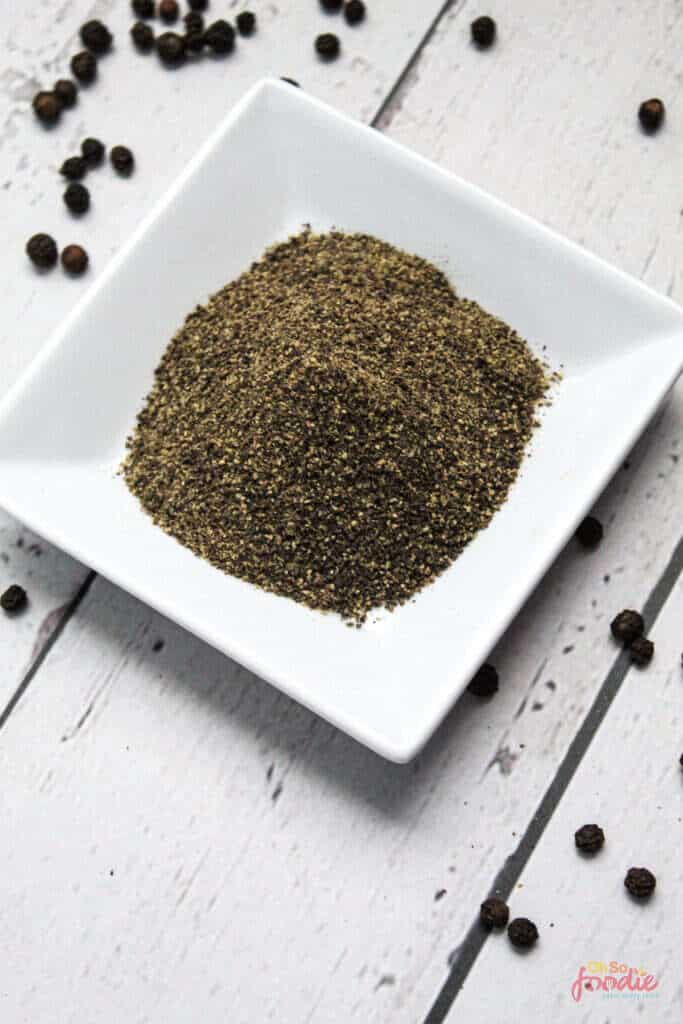
Another good alternative to white pepper is black pepper or black peppercorns.
Black pepper has a more complex and pungent flavor compared to white pepper and the difference will be noticeable in certain recipes. Also, black pepper will leave visible black specks in certain recipes like white sauces, light-colored soups, mashed potatoes, etc.
Because black pepper is more complex and hotter than white pepper, you’ll need half as much black pepper when using it as a replacement for white pepper. A 2:1 ratio is the best option. Therefore, if a recipe calls for 1 teaspoon of white pepper, replace it with ½ a teaspoon of black pepper instead.
Green peppercorns
These peppercorns have a mild, fruity, fresh flavor and in my opinion, are more like white peppercorns than black peppercorns. Therefore, if you can find them, they’ll make a good sub for white pepper since they’re mild.
These peppercorns go nicely with potatoes, pasta, sauces, soups, and any other recipe where black pepper would not work.
Sometimes you can find dried green peppercorns, but mostly they’re sold preserved in brine. I personally prefer the dried green peppercorns as they can be ground to a fine powder and used at a 1:1 substitute ratio for white pepper.
Rainbow peppercorns
Rainbow peppercorns is a medley of all peppercorns including green peppercorns, black peppercorns, white peppercorns, and pink peppercorns. As such rainbow peppercorns have a wonderful complex, contrasting flavor and will give a nice colorful kick to recipes where the different colors won’t affect the dish. Some of these recipes include dark soups, stews, dark sauces, meats, seafood, and so on.
When you use this ingredient as a sub for white pepper, start with fewer rainbow peppercorns, then adjust the quantity to your taste.
Turmeric powder
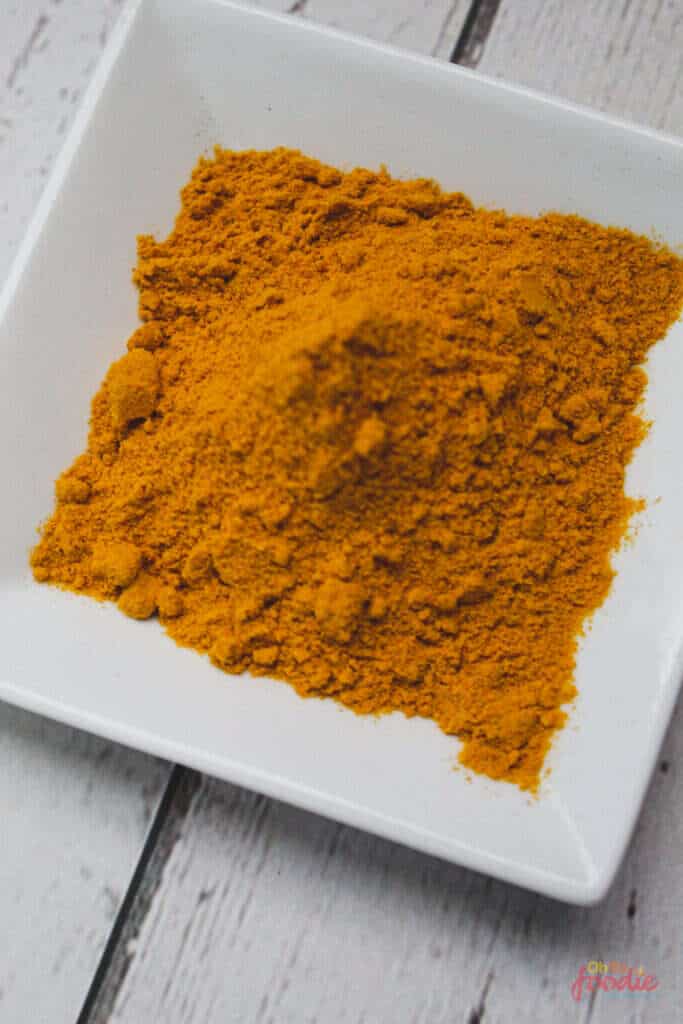
Do you have turmeric powder on hand? You can use it as a simple white pepper alternative if you do. Turmeric makes a worthy substitute because it is earthy, slightly bitter, musky, and peppery which is not unlike white pepper.
Since turmeric is bright yellow, you should avoid using it in recipes where the color affects the dish like white sauces, salmon, soups, etc. However, in dishes where the color does not matter, turmeric powder can substitute for white pepper at a 1:1 ratio.
Ground ginger
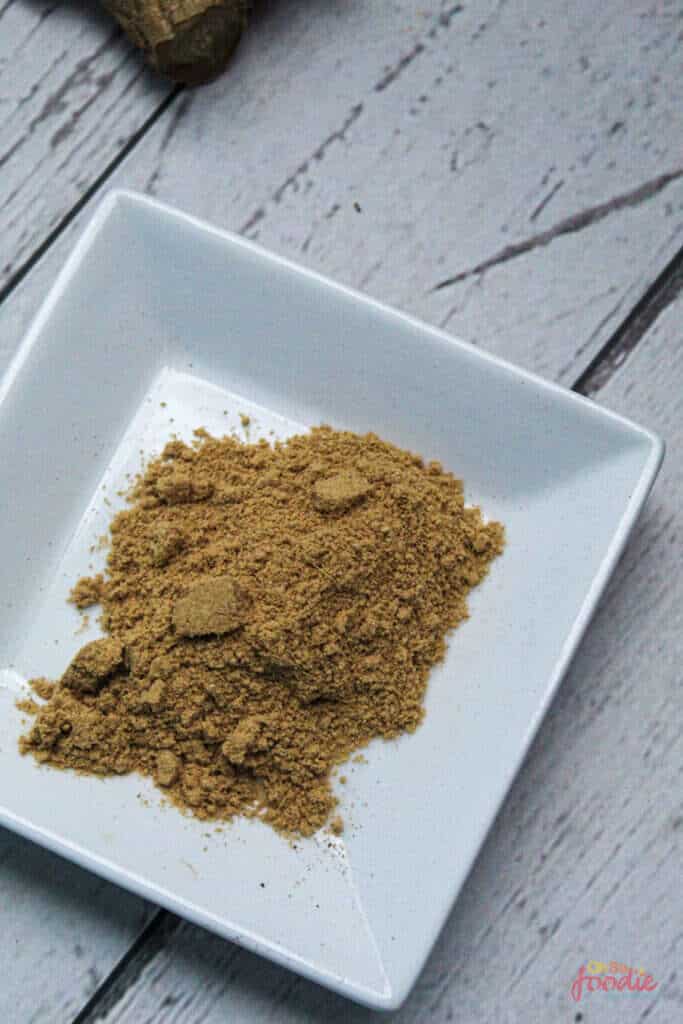
While ground ginger is not as peppery as white pepper, if you have some on hand, it can substitute for white pepper in a pinch.
Ground ginger has a slightly sweet, pungent, slightly peppery flavor. It also has a similar appearance to white pepper which means you can incorporate it into light dishes easily.
Start with half the amount and adjust to your taste. This means if a recipe calls for 1 teaspoon of white pepper, start by replacing it with ½ a teaspoon of ground ginger, then adjust later.
Cayenne pepper powder
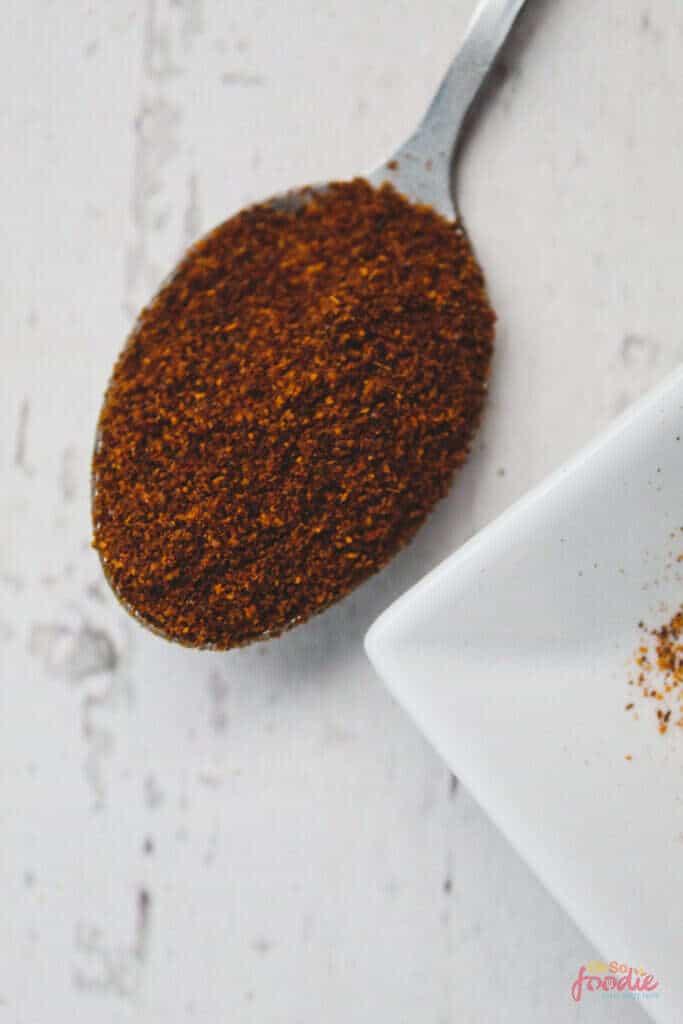
Most people have cayenne pepper in their spice cabinets. This makes cayenne a great white pepper sub since it can add a spicy flavor to some recipes that call for white pepper.
Cayenne pepper is very spicy compared to white pepper, so always start off with a pinch of cayenne pepper, then adjust to your taste. Also, check out some substitutes for cayenne pepper powder here.
Ground mustard
Ground mustard can add a nice pungent kick to recipes like sauces, potato salads, seafood, dressings, and soups in place of white pepper. Like turmeric, ground mustard will change the color of your recipe, so keep this in mind if you plan to use it as a ground white pepper substitute.
Also, start with a pinch and adjust to your taste.
Red pepper flakes
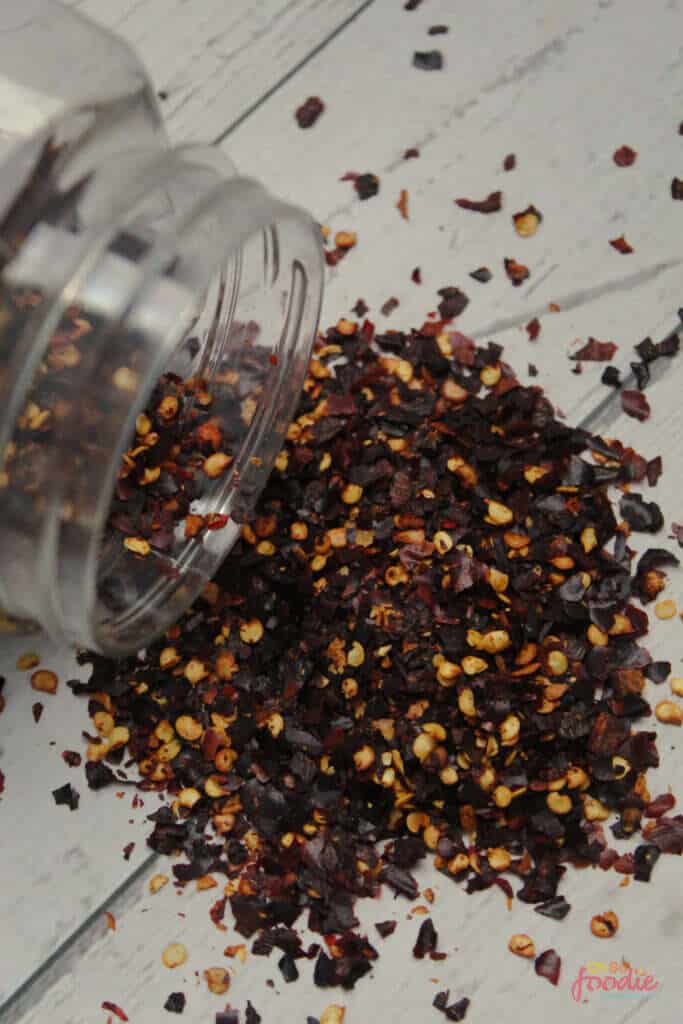
Most people have red pepper flakes in their spice cabinet. Therefore, if you have no white pepper available, red pepper flakes can make an unusual substitute for ground white pepper in certain recipes.
Red pepper flakes are hotter than white pepper, so start with significantly fewer pepper flakes, then adjust to your taste.
Paprika
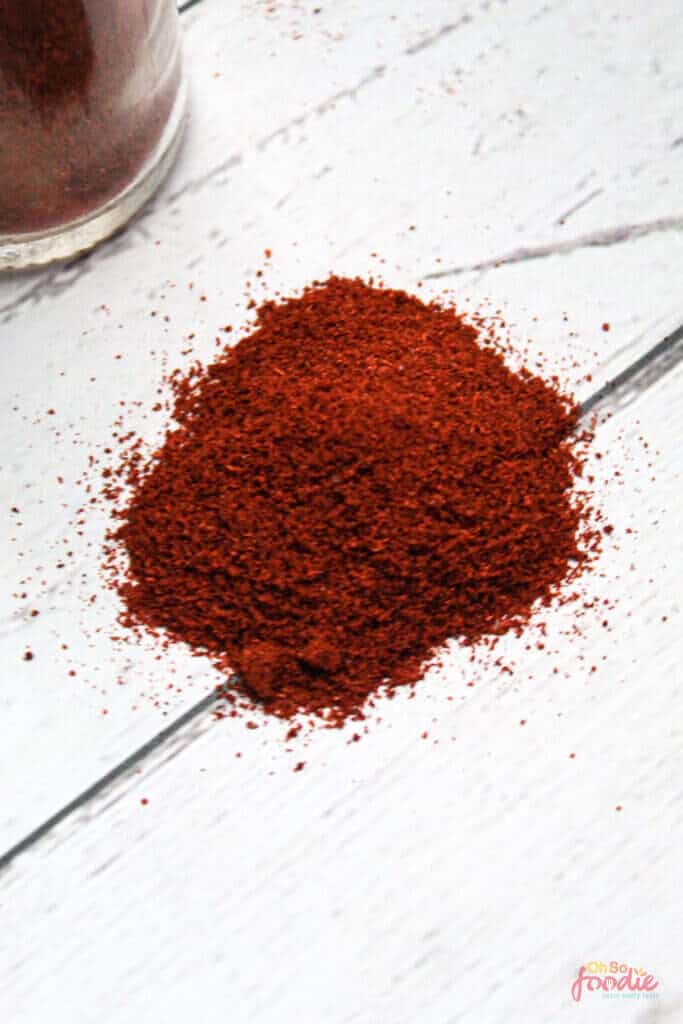
Lastly, if you have paprika, it can work in place of white pepper to add a bit of spiciness to certain recipes. It will add a reddish color to the recipe, so keep this in mind.
When I have no white pepper, I like to use a replacement like paprika in my dark soups and stews. I often start with a pinch, then adjust as I cook.
Recipes with white pepper
Cajun seasoning
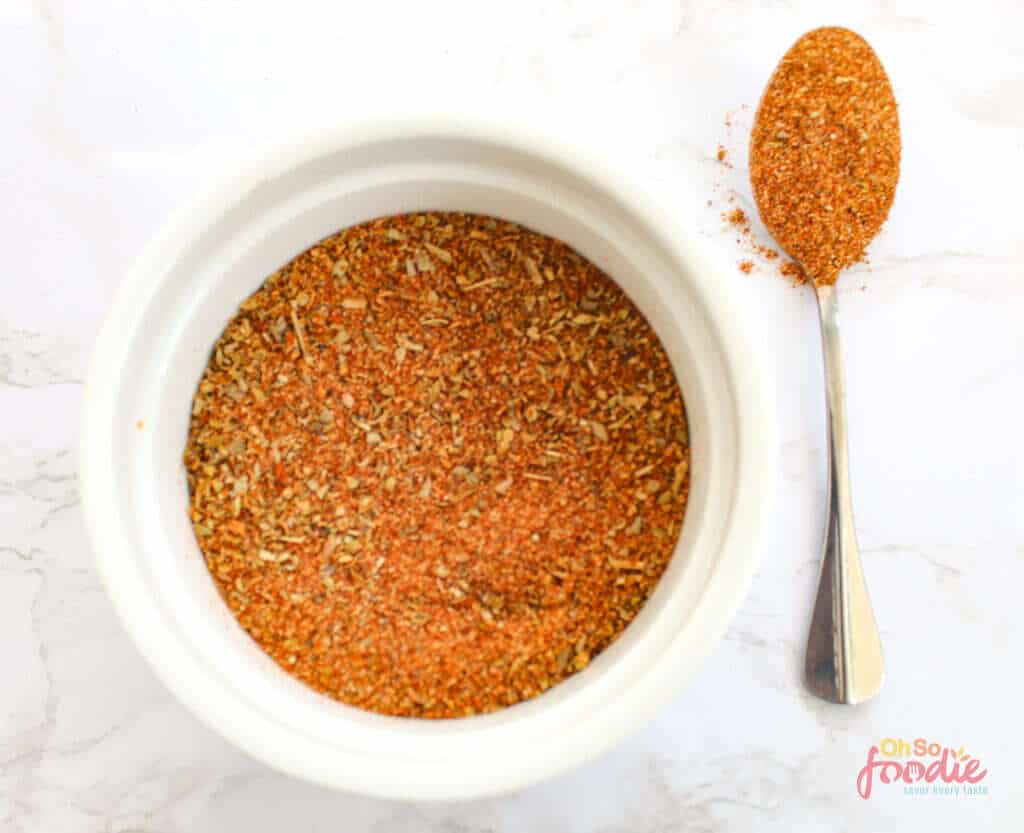
Cajun seafood boil

Creamy cajun sauce
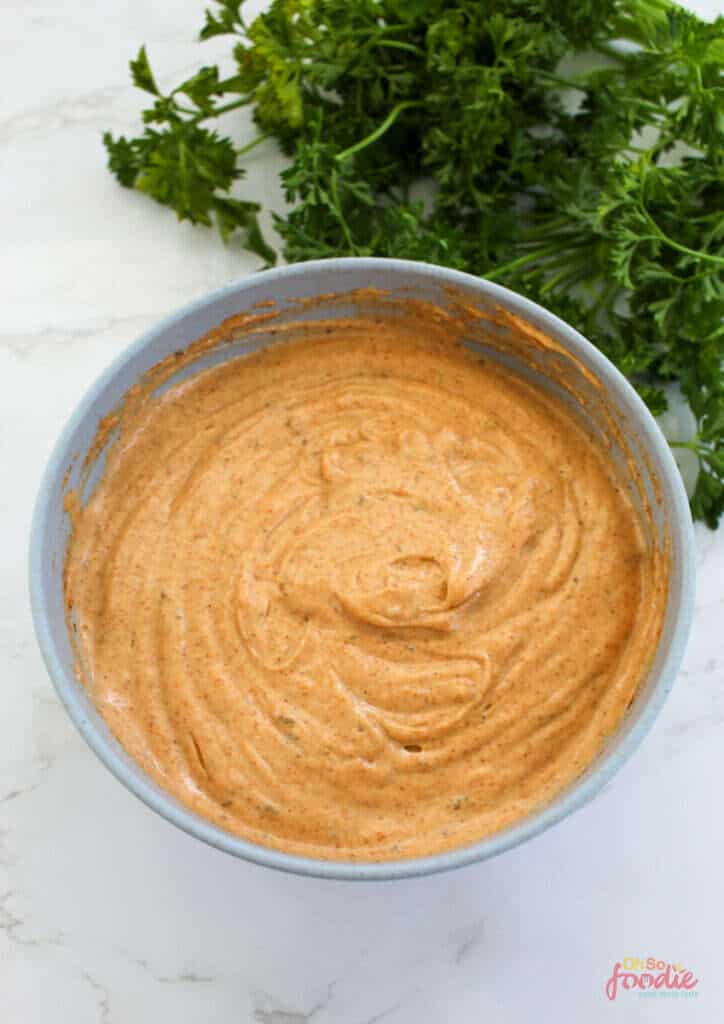
FAQs about substituting white pepper
How much black pepper do I substitute for white pepper?
Generally in a situation where you need to substitute black pepper for white pepper, use less black pepper so as not to overpower the recipe.
Follow the conversion ratio below:
1 teaspoon of white pepper = ½ teaspoon of black pepper
